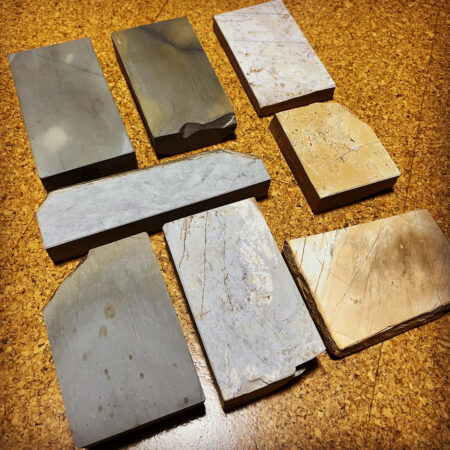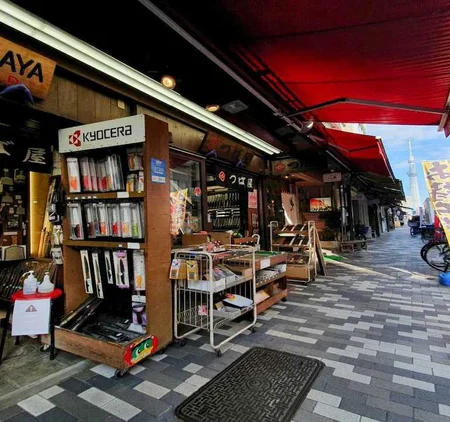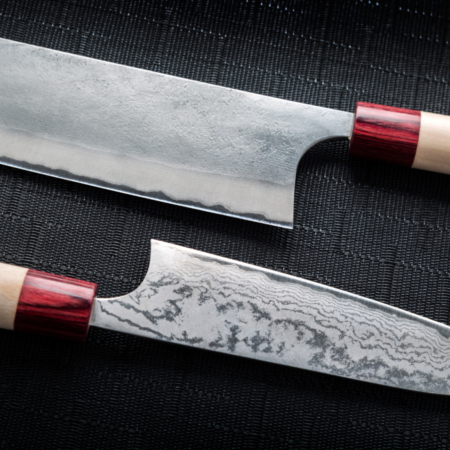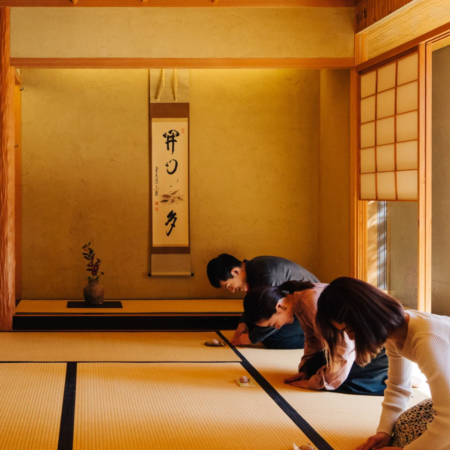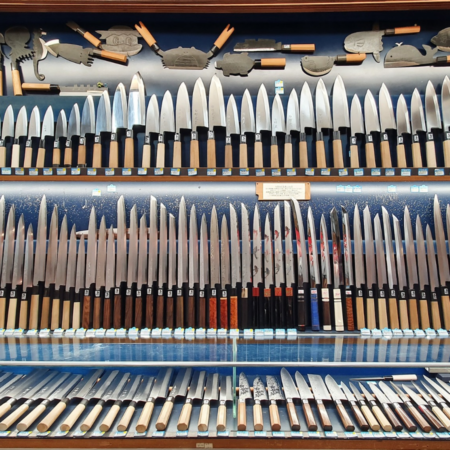3 points
Place of Origin
The origin of a knife only indicates where it was made. A well-known origin does not guarantee quality. What truly matters are the skills of the craftsman and the quality control of the shop, which are far more crucial than the knife's origin.
Steel Material
While using high-quality steel is important, the craftsmanship is what ultimately determines the knife’s quality. Just like cooking, high-quality ingredients won't yield a great dish if the cook lacks skill. Similarly, a skilled craftsman can create a superior knife even with moderately good materials.
Hardness of the steel
There is a common misconception, among both customers and some staff, that the harder the metal, the better the knife. This misunderstanding is partly due to modern information overload. Hard materials are often more expensive and difficult to work with, which can increase the knife’s price. However, hardness alone does not equate to quality. True experts agree that hardness is not directly related to a knife’s quality. The hardness of a knife affects its characteristics, with both advantages and disadvantages, and a knowledgeable person will explain these thoroughly.
By understanding these points, you can make more informed decisions when purchasing a knife.
Dealing with Inexperienced Staff
When shopping in Kappabashi or any other tourist destination, it’s crucial to be aware of the varying levels of expertise among shop staff. While many work in specialty stores, the majority are not professionals in their fields. More than 90% might follow standard customer service templates and lack in-depth knowledge. This chapter will delve into identifying knowledgeable staff and navigating interactions with less experienced ones, offering strategies to avoid misinformation.
Identifying Knowledgeable Staff
Signs of Inexperienced Staff
- Overemphasis on Steel Hardness: If a staff member claims that harder steel always means a better knife, it’s a red flag. Hardness is a factor, but it’s not the sole determinant of a knife’s quality.
- Brand and Origin Focus: Staff who push specific brands or focus solely on the knife’s origin without discussing practical aspects likely lack comprehensive understanding.
- Simplistic Explanations: Beware of staff providing simplistic explanations, such as "the higher the price, the better the knife." Quality knives involve a balance of factors including steel type, craftsmanship, and intended use.
What to Look For in Knowledgeable Staff
- Detailed Explanations: Knowledgeable staff will discuss both the advantages and disadvantages of a knife, providing a balanced view. They will explain why a particular knife is expensive and offer detailed information about its construction and use.
- Tailored Recommendations: Experienced staff will ask about your needs and preferences, tailoring their recommendations accordingly.
- Honesty About Limitations: True professionals will not hesitate to mention any limitations or downsides of a knife, helping you make an informed decision.
Strategies for Dealing with Inexperienced Staff
- Ask Specific Questions: Prepare a list of specific questions about the knife’s material, maintenance, and usage. This can help gauge the staff’s knowledge.
- Request Detailed Information: If a staff member provides a vague answer, ask for more details. A knowledgeable person will be able to elaborate and provide clear explanations.
- Seek Second Opinions: If you are unsure about the information provided, don’t hesitate to seek a second opinion from another store or staff member.
- Trust Your Instincts: If something feels off or the staff seems unsure, trust your instincts and continue your search elsewhere.
Examples
Broader Examples and Other Industries
This issue of dealing with inexperienced staff is not limited to knife shops in Kappabashi. It can occur in various other industries and tourist destinations:
- Electronics Stores in Akihabara: In Tokyo’s famous electronics district, Akihabara, many shop assistants may not have in-depth knowledge of the latest gadgets and technologies. Shoppers should look for staff who can provide detailed technical explanations and practical advice rather than just pushing the most expensive products.
- Jewelry Stores: When purchasing jewelry, it’s essential to deal with knowledgeable staff who can explain the nuances of gemstone quality, carat weight, and metal types. Inexperienced staff might only focus on selling high-priced items without providing proper education on what makes a piece valuable.
- Wine Shops: In specialized wine shops, a knowledgeable staff member should be able to recommend wines based on your taste preferences and food pairings. Inexperienced staff might suggest the most expensive bottles without understanding the complexities of wine selection.
- Art Galleries: When buying art, dealing with a knowledgeable curator is crucial. They should provide insights into the artist’s background, the significance of the piece, and its market value. Inexperienced staff might lack this depth of understanding, leading to ill-informed purchases.
Ensuring Authentic Experiences
To ensure you are getting authentic and high-quality products or experiences, consider these additional tips:
1. Do Your Research: Before visiting a store or tourist destination, do some research online. Read reviews, watch videos, and gather as much information as possible about what you are looking to purchase.
2. Ask for Recommendations: Use social media or travel forums to ask for recommendations. Other travelers can provide valuable insights into where to find knowledgeable staff and high-quality products.
3. Take Your Time: Don’t rush your purchase. Take your time to visit multiple stores, ask questions, and compare products. This will give you a better sense of what is available and help you make an informed decision.
4. Look for Certifications: In some industries, such as jewelry or wine, certifications can indicate a level of expertise and authenticity. Look for stores or products that come with recognized certifications or endorsements.
Conclusion
Dealing with inexperienced staff can be challenging, but by being proactive and informed, you can navigate these interactions successfully. Whether you are shopping for knives in Kappabashi, electronics in Akihabara, or souvenirs in a local market, being aware of the signs of knowledgeable staff and using the strategies outlined in this chapter will help ensure you make informed and satisfying purchases. Always remember to trust your instincts and seek second opinions when needed to avoid misinformation and make the most of your shopping experience.


